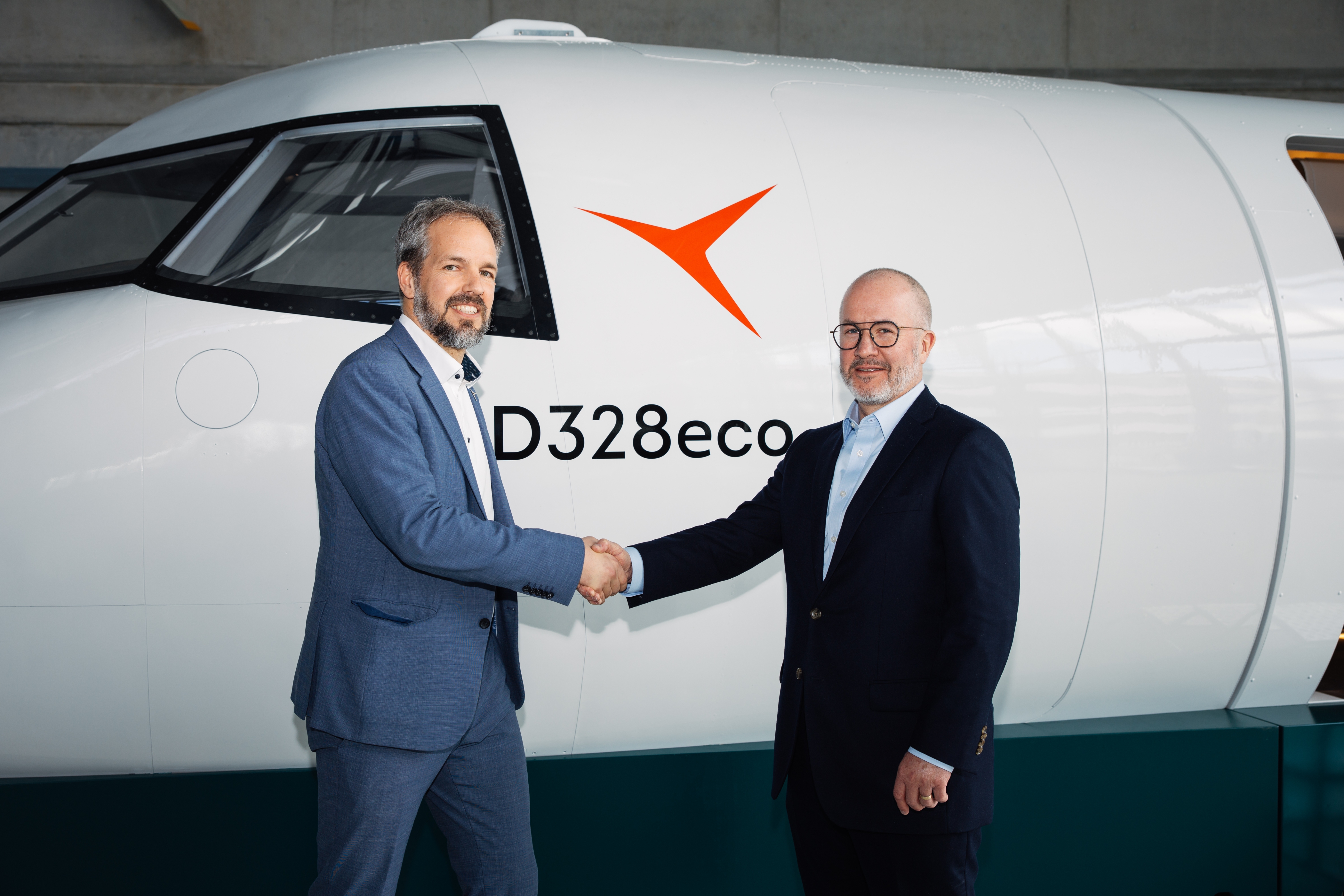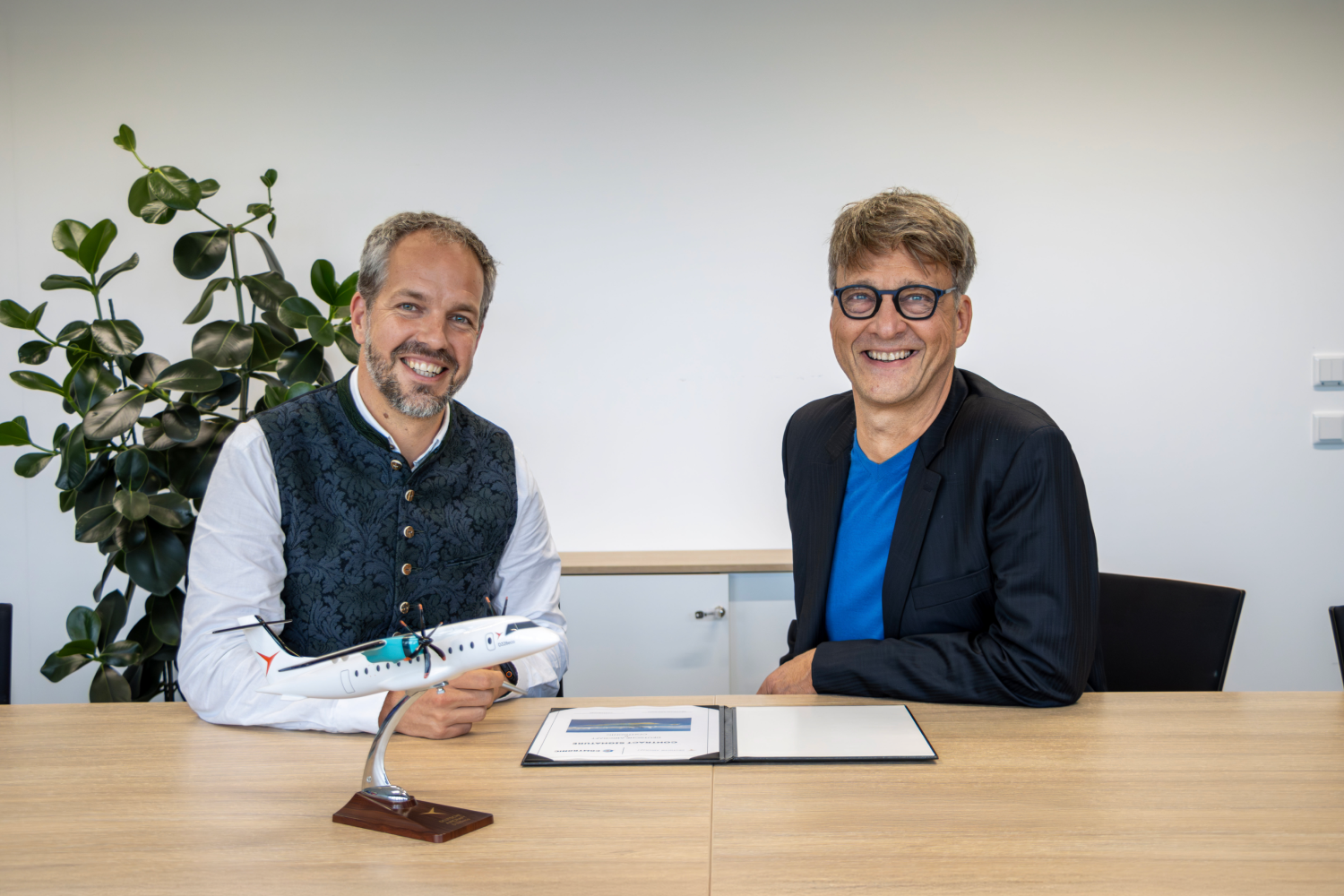On the way to climate-neutral flying: the Federal Ministry for Economic Affairs and Climate Action is funding a project to further develop hydrogen fuel cell technology

• An important step towards climate-neutral passenger aircraft.
• Promising hydrogen fuel cell system in the megawatt range is being developed and will be demonstrated in flight by 2025.
• Ten partners from science and industry are thus jointly promoting flying with hydrogen.
• A Dornier 328 is to become a demonstration aircraft for climate-neutral flights in the EASA large aircraft class ("CS25").
• Participating DLR spin-off H2FLY strengthens DLR's strategic position in the field of technology transfer.
The climate-neutral aviation of tomorrow needs CO2-free propulsion technologies. For regional aircraft, hydrogen-electric propulsion systems with hydrogen fuel cell technology offer a promising option. This technology is now receiving a strong boost from the "328H2-FC" project. Led by the German Aerospace Center ((Deutsches Zentrum für Luft- und Raumfahrt; DLR) in cooperation with H2FLY, Deutsche Aircraft, Diehl Aviation and six other partners, the project is the first to develop a fuel cell system with with a power output of one and a half megawatts for use in flight. The project opens up a technological perspective for future regional aircrafts in the 40-seater class. At the beginning of 2022, The Federal Ministry for Economic Affairs and Climate Action (Bundesministerium für Wirtschaft und Klimaschutz; BMWK) handed over the funding notification. The BMWK is funding the realisation of the first megawatt hydrogen fuel cell system for air transport with approximately 30 million Euros.
Within the framework of the partnership, a Dornier 328 aircraft will be converted to be used for hydrogen-electric passenger flights for the first time. This involves the electrification of the powertrain and the integration of a fuel cell system, including a cooling system and a liquid hydrogen tank.. The "328H2-FC" project paves the way for proving the potential of hydrogen for climate-neutral air travel. The unique hybrid-electric powered demonstration aircraft for EASA's large aircraft class ("CS25") is scheduled to take off for the first time in 2025. Before that, tests of the fuel cell system are planned using a new ground-based test facility at DLR.
Prof. Dr. Josef Kallo, co-founder and CEO of H2FLY: "With this funding, H2FLY will extend its lead as a global technology leader in the field of hydrogen-electric propulsion. Flying with hydrogen without CO2 emissions will become a reality."
Dr Anna Christmann Member of the Bundestag (Federal Parliament) and Federal Government Coordinator of German Aerospace Policy: "H2FLY is an important building block for the future strategy of emission-free aviation. With the project funded by the BMWK, we have the unique opportunity to further expand the technological lead in flying with hydrogen here in Germany. With our funding, we are enabling research to overcome the technical challenges of using hydrogen in aviation."
Prof. André Thess, Director of the DLR Institute of Engineering Thermodynamics:: "With a fuel cell that generates more than one megawatt of power, we are pushing open the door to climate-neutral passenger aviation without CO2 emissions. At DLR's Stuttgart site, we will test the new technology extensively before moving on to aircraft integration and initial flight tests. By the end of the decade, such passenger aircrafts could already be in commercial operation."
Martin Nüßeler, CTO of Deutsche Aircraft: "Our Dornier 328 is the optimal platform for demonstrating the new fuel cell technology. We can thus bring technology into real environmental conditions and accelerate our path towards climate-neutral aviation."
Benno Petersen, Head of Innovation and R&T at Diehl Aerospace: "Our company is participating in the 328H2-FC project with extensive research packages. In this way, we are impressively documenting our interest in this forward-looking propulsion technology and underlining the important role that the equipment industry plays in the development of such innovative systems."
In cruise flight, the use of the hydrogen fuel cell energy system enables the aircraft to operate without emitting carbon dioxide, which means that a large part of the flight distance can be covered in a completely climate-neutral manner. For the energy-intensive take-off, a gas turbine will initially provide additional thrust as part of the testing in the hybrid-electric concept.
The project as a whole thrives on the cooperation in a strong partner network of DLR, H2FLY, Deutsche Aircraft and Diehl Aviation (incl. Diehl Aerospace). Other project‘s partners are AKG Verwaltungsgesellschaft mbH, Bauhaus Luftfahrt e.V., GE Aviation, HS Elektronik GmbH, Industrieanlagen-Betriebsgesellschaft mbH and Premium Aerotec GmbH.
BMWK funding for the 328H2-FC project is provided within the framework of the aeronautics research programme (LuFo VI-2). The joint project leader is DLR. The project builds on the predecessor projects 328eHY-LAB and 328eHY-TECH (LuFo VI-1) led by Deutsche Aircraft.
For media enquiries, please contact pressoffice@deutscheaircraft.com













